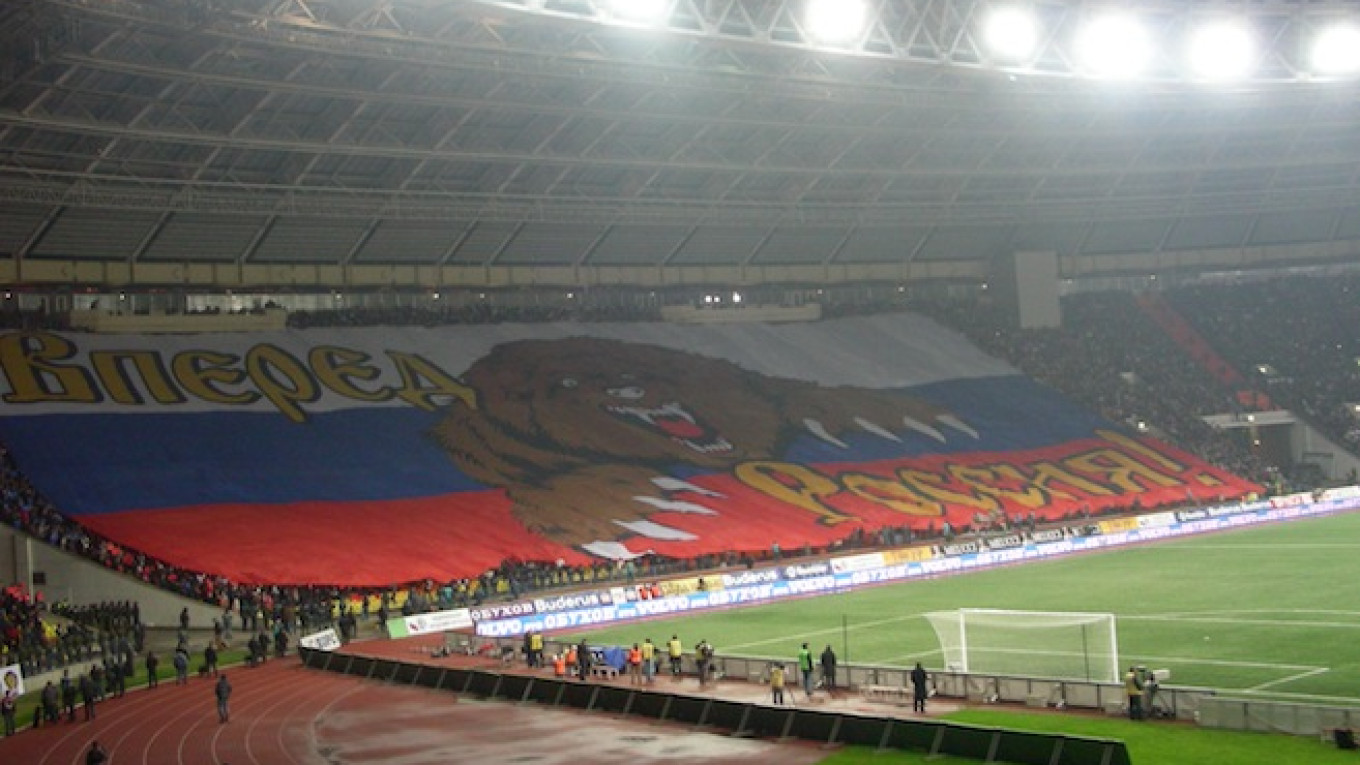Ukraine's ambassador to the EU has said Russia should face EU financial sanctions and lose the right to host the 2018 football World Cup because of its annexation of the Crimea region.
Asset freezes and visa bans adopted by the EU so far in response to Russia's actions in Ukraine did not go far enough, Kostiantyn Yelisieiev said in an interview.
Russia had crossed a red line by annexing Crimea and making aggressive moves towards eastern Ukraine and the EU must impose the tough economic sanctions it has threatened, he said.
"They must proceed with … targeted, well-calibrated sanctions, mainly, in my view, of a financial nature," Yelisieiev said, suggesting Russia be cut off from the SWIFT global electronic payments system.
The EU has imposed sanctions on 61 Russians and Ukrainians and frozen the assets of two Crimean companies in response to Russia's actions in Ukraine.
But its 28 member states are divided over imposing tougher trade or financial sanctions because of fears this would damage their own economies and provoke Russian retaliation.
Yelisieiev urged the EU to show that economic and business interests did not prevail over what he called European values.
He also suggested the rest of the world take steps such as to "withdraw the right from the Russian Federation to host the World Cup ... for 2018."
"In my view, it is feasible because Russia, as a member of [world football's governing body] FIFA, should respect certain values and certain obligations," he said.
Such a step would hurt the Russian leadership "because for (Russian President Vladimir) Putin this is a huge political ... and financial project," he said.
Fifa Refusal
Two U.S. senators, Dan Coats and Mark Kirk, wrote to FIFA in March asking it to convene an emergency session to consider suspending Russia's membership, strip it of its right to host the 2018 World Cup and bar Russia from this year's World Cup in Brazil.
FIFA responded that only a violation of its statutes could lead to a country's expulsion from a competition. Russia was awarded the right to host the 2018 World Cup in 2010.
Yelisieiev said Sunday's presidential election would be the most important and difficult since Ukraine became independent in 1991. He acknowledged there would be problems in some towns and cities in the Donetsk and Luhansk regions of eastern Ukraine, where pro-Russian militants have occupied public buildings, but he voiced confidence the election would be free and fair.
The EU should also support Ukraine by offering the prospect of eventual EU membership, giving it legal help to recover assets seized by Russia in Crimea, and by allowing Ukrainians to travel to the EU without visas, Yelisieiev said.
The EU has said it is willing to provide $15 billion in loans and grants to Ukraine over several years to help get the shattered economy back on its feet.
The bloc has also agreed to extend nearly 500 million euros ($683 million) of trade benefits to Ukraine.
Upheaval in Ukraine began when former pro-Russian President Viktor Yanukovych turned his back last year on an agreement on closer trade and political cooperation with the EU in favor of a $15 billion bailout from Russia. Subsequent street protests pushed him to flee the country.
See also:
FIFA Should Expel Russia From Soccer World Cup, U.S. Senator Says
A Message from The Moscow Times:
Dear readers,
We are facing unprecedented challenges. Russia's Prosecutor General's Office has designated The Moscow Times as an "undesirable" organization, criminalizing our work and putting our staff at risk of prosecution. This follows our earlier unjust labeling as a "foreign agent."
These actions are direct attempts to silence independent journalism in Russia. The authorities claim our work "discredits the decisions of the Russian leadership." We see things differently: we strive to provide accurate, unbiased reporting on Russia.
We, the journalists of The Moscow Times, refuse to be silenced. But to continue our work, we need your help.
Your support, no matter how small, makes a world of difference. If you can, please support us monthly starting from just $2. It's quick to set up, and every contribution makes a significant impact.
By supporting The Moscow Times, you're defending open, independent journalism in the face of repression. Thank you for standing with us.
Remind me later.


